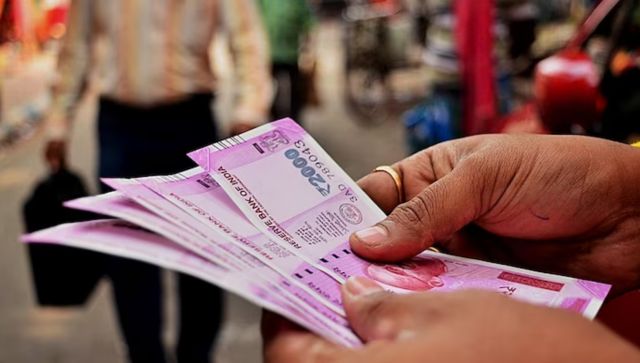To facilitate the smooth withdrawal of Rs 2000 denomination currency notes from the system, banks are putting in place a process to help customers. The Reserve Bank of India (RBI) has given time till September 30 for the public to exchange or deposit the currency notes in their possession with banks or dedicated RBI offices. Here’s what banks are doing: India’s largest public sector bank in terms of assets, State Bank of India (SBI) on May 21 informed all its branches that no form or identity proof should be demanded from customers to exchange Rs 2,000 currency notes, even as it reiterated the one-time limit of Rs 20,000 for depositing or exchanging currency, according to a Moneycontrol report. “Banks are advised to provide appropriate infrastructure at the branches such as shaded waiting space, drinking water facilities, etc. considering the summer season,” the RBI’s circular on Monday read. Other major banks too have taken note of RBI’s advisory to smoothly complete the process of withdrawal of currency from the system. The Bank of Baroda in a circular to branch managers said, “Branches may establish additional counters for effective management and to avoid any law and order situation.” The Punjab National Bank (PNB) circular indicated that there shall not be any limit on the quantity and value of the Rs 2000 denomination notes to be credited into the account maintained with the bank. “For providing deposit/exchange facility to people residing in remote/ unbanked areas, circles may consider using mobile vans,” the PNB circular read. It also added that all banknotes in this denomination received by banks shall be sorted immediately through Note Sorting Machines (NSMs) for accuracy and genuineness and deposited in the currency chests under the Linkage Scheme or kept ready for dispatch to the nearest Issue Office of RBI. In a circular, UCO bank management said the deposited Rs 2000 notes would be secured in separate boxes or bins and sealed at the end of the day. The bin or the box would be sealed when full and the branch would liaise with the Regional RBI office to lift soiled notes and 2000 currency to create space by respective CCs (cross currency swap). Despite the sudden move of withdrawing Rs 2000 notes from circulation, bankers don’t expect large crowds, seen during demonetisation, visiting banks to exchange Rs 2,000 notes. People have time till September 30 to deposit or exchange these high denominations notes. The total value of Rs 2,000 notes in circulation has declined to 10.8 per cent of the total as on March 31, 2023, according to the data shared by the RBI. About 89 per cent of the Rs 2,000 denomination banknotes were issued prior to March 2017 and are at the end of their estimated life span of 4-5 years, the RBI said on May 19. Pointing out that the high denomination notes are not commonly used in transactions, the RBI said, “The stock of banknotes in other denominations continues to be adequate to meet the currency requirement of the public.” Read all the Latest News , Trending News , Cricket News , Bollywood News , India News and Entertainment News here. Follow us on Facebook, Twitter and Instagram.
No id proof, shaded waiting space, drinking water and mobile vans are some of the measures banks are putting in place to help customers exchange currency
Advertisement
End of Article


)

)
)
)
)
)
)
)
)



